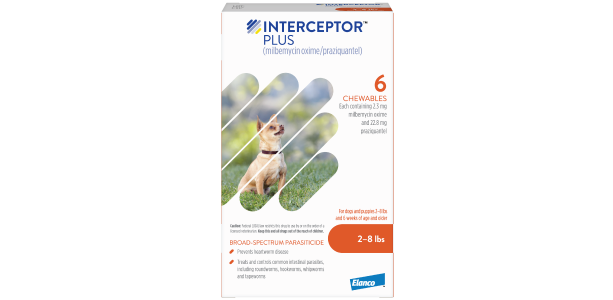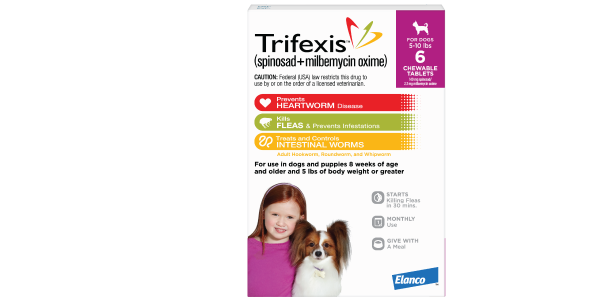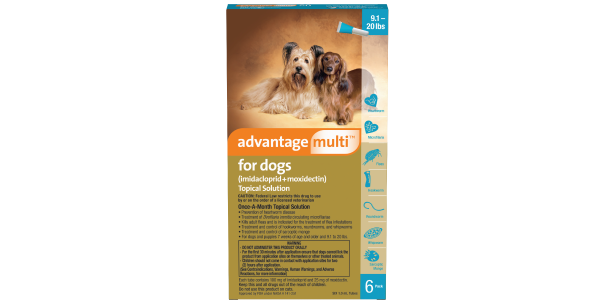What you should know about dog heartworms.
Easy to prevent but difficult to cure, heartworms can cause serious problems in dogs. If left untreated, these long, string-like parasites can cause a number of complications and even death. Discover how heartworm in dogs is diagnosed, treated and prevented.
How Do Dogs Get Heartworm?
Dogs get heartworms from mosquitoes. When a mosquito bites and feeds on a heartworm-positive dog, it becomes infected with microfilariae (heartworm offspring), which develop into larvae. When that mosquito bites another dog, it can pass on the infective larvae. These larvae will grow and develop over several months inside a dog, eventually becoming adult heartworms that live in the lungs and heart.
Heartworm disease is difficult to treat. Therefore, it’s smart to recognize the signs and symptoms, as well as how to treat and prevent heartworms in dogs.
What Are the Symptoms of Heartworms in Dogs?
Symptoms can vary depending on the number of heartworms present, and often symptoms don’t show up at all until the disease has progressed. Dogs with a low number of worms may show fewer symptoms, like tiring easily during exercise, but a higher number of heartworms can lead to symptoms such as:
- Coughing
- Fainting spells
- Erratic heartbeat
- Fatigue
- Difficulty breathing
As time passes, cardiopulmonary disease, heart failure and kidney disease are also possible.
Some of these symptoms can also be indicators of other health conditions. If you observe these symptoms in your pet, consult your vet for a diagnosis.
How Is Heartworm Disease Diagnosed?
Vets can diagnose heartworm disease by testing the dog’s blood and looking for heartworm microfilariae circulating in the bloodstream and the presence of adult worms. Chest X-rays can also help determine the extent of heart and lung damage.
Heartworm disease is a progressive illness, and the earlier it’s detected and treated, the better chance dogs have of surviving and limiting permanent damage to their lungs and heart. If your dog tests positive, treatment is expensive and can be risky. However, treatment will be necessary to save your dog’s life.
How Are Heartworms Treated?
While there is heartworm medication for dogs, it is difficult to treat — largely because killing the worms can cause additional problems, such as the dead worms becoming lodged in the dog’s circulation system.
Heartworm treatment involves giving a drug to kill the adult heartworms. Dogs need restricted exercise and supportive therapy for potentially several months to avoid complications. For instance, if a dog is very active during the treatment process, dead or dying worms can break apart and become stuck in the lungs, creating a clot.
Additionally, a different drug is administered to target microfilariae circulating in the bloodstream. Again, this stage is not without complications, as these dying microfilariae can lead to allergic reactions.
A range of additional therapies may be needed depending on the symptoms the dog is showing, and sometimes the vet will prescribe additional treatment such as pain medication and antibiotics.
Following the treatment, your dog should be retested to make sure all the worms and their larvae are dead. Your vet will set up a timeframe to retest your dog; retesting generally occurs around six months to a year from when treatment first started.
How to Help Prevent Heartworm
When it comes to heartworms, prevention should be top of mind. Use a heartworm preventive product that will kill the larval stages of the parasite before they can become adult worms.
The American Heartworm Society (AHS) recommends that all dogs are treated with heartworm prevention and that puppies are started on prevention as early as possible — no later than 8 weeks of age. The AHS also recommends all dogs and puppies, even those currently on heartworm prevention, are tested for infection once a year. For additional protection, owners can use a product to repel mosquitoes.
Talk to your vet about the steps you should to take to make sure your dog is protected from heartworms.

Interceptor® Plus (milbemycin oxime/praziquantel)
A monthly chew that protects dogs and puppies 6 weeks or older and 2 pounds or greater against heartworm disease, adult hookworm, roundworm, tapeworm and whipworm infections.

Trifexis® (spinosad + milbemycin oxime)
A beef-flavored tablet that kills fleas and prevents flea infestations, prevents heartworm disease, and treats and controls adult hookworm, roundworm and whipworm infections.

Advantage Multi® for Dogs (imidacloprid + moxidectin)
WARNING: DO NOT ADMINISTER THIS PRODUCT ORALLY. For the first 30 minutes after application ensure that dogs cannot lick the product from application sites on themselves or other treated animals. Children should not come in contact with the application sites for two (2) hours after application. (See Contraindications, Warnings, Human Warnings, Dosage & Administration, and Adverse Reactions for more information.)
Related Articles
Interceptor® Plus (milbemycin oxime/praziquantel)
Indications:
Interceptor Plus prevents heartworm disease and treats and controls adult roundworm, hookworm, whipworm, and tapeworm infections in dogs and puppies 6 weeks or older and 2 pounds or greater.
Important Safety Information:
Treatment with fewer than 6 monthly doses after the last exposure to mosquitoes may not provide complete heartworm prevention. Prior to administration of Interceptor Plus, dogs should be tested for existing heartworm infections. The safety of Interceptor Plus has not been evaluated in dogs used for breeding or in lactating females. The following adverse reactions have been reported in dogs after administration of milbemycin oxime or praziquantel: vomiting, diarrhea, decreased activity, incoordination, weight loss, convulsions, weakness, and salivation. For complete safety information, please see Interceptor Plus product label or ask your veterinarian.
Trifexis® (spinosad + milbemycin oxime)
Indications:
Trifexis prevents heartworm disease. Trifexis kills fleas and prevents flea infestations, and treats and controls adult hookworm, roundworm and whipworm infections in dogs and puppies 8 weeks and older and 5 pounds or more.
Important Safety Information:
The use of ivermectin at higher than FDA-approved doses at the same time as Trifexis can result in serious side effects. Treatment with fewer than three monthly doses after the last exposure to mosquitoes may not provide complete heartworm prevention. Prior to administration of Trifexis, dogs should be tested for existing heartworm infection. Use with caution in breeding females. The safe use of Trifexis in breeding males has not been evaluated. Use with caution in dogs with pre-existing epilepsy. The most common adverse reactions reported are vomiting, decreased activity, itching, decreased appetite, and diarrhea. To ensure heartworm prevention, observe your dog for one hour after administration. If vomiting occurs within an hour of administration, redose with another full dose. Puppies less than 14 weeks of age may experience a higher rate of vomiting. For complete safety information, please see Trifexis product label or ask your veterinarian.
Advantage Multi® for Dogs (imidacloprid + moxidectin)
Indications:
Advantage Multi® for Dogs is a once-a-month topical solution for the prevention of heartworm disease, the treatment of circulating microfilariae, killing adult fleas, the treatment of flea infestations, the treatment and control of sarcoptic mange, and the treatment and control of hookworm, roundworms and whipworms infections in dogs and puppies that are at least 7 weeks of age and that weigh at least 3 lbs.
Important Safety Information:
CAUTION: Federal law restricts Advantage Multi® for dogs to use by or on the order of a licensed veterinarian.
WARNING: DO NOT ADMINISTER THIS PRODUCT ORALLY. For the first 30 minutes after application ensure that dogs cannot lick the product from application sites on themselves or other treated animals. Children should not come in contact with the application sites for two (2) hours after application. (See Contraindications, Warnings, Human Warnings, Dosage & Administration, and Adverse Reactions for more information.) CONTRAINDICATIONS: Do not use this product on cats.




